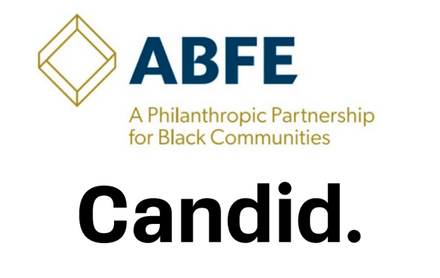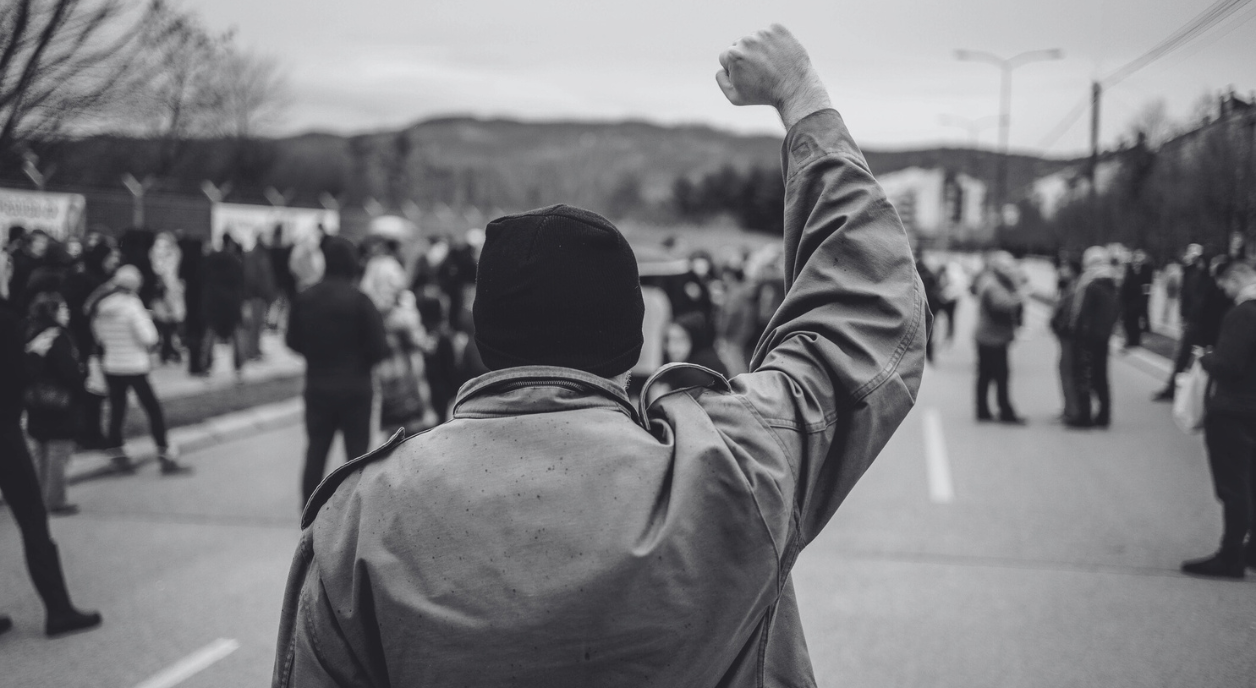Let’s All Pull Together: Reflections from Harambee 2023

“Welcome home.”
ABFE president and CEO Susan Taylor Batten gave this greeting to those of us who were able to experience the 2023 Harambee conference last month. Make no mistake—it is an experience, both an individual and collective Black experience. “Harambee,” which is Swahili for “Let’s all pull together,” was interwoven throughout the conference. After two years of attending Harambee virtually, I was excited to finally join in person, alongside more than 800 fellow attendees.
As the largest gathering of Black professionals in philanthropy, there were so many powerful sessions, poignant perspectives, spaces for healing, and moments of Black joy at Harambee. Here are some of my reflections and top takeaways from the conference.
Uplifting historically Black colleges and universities (HBCUs)
Shaw University, located in Raleigh, NC, was the first HBCU organized in the South and is the birthplace of the Student Nonviolent Coordinating Committee (SNCC). Fittingly, the university hosted the session “A Report on Philanthropic Funding to Historically Black Colleges and Universities.” Panelists discussed the critical role of HBCUs in uplifting Black communities and explored new research on the disparately uneven philanthropic support for these institutions.
While the research revealed a disappointing reality, it also highlighted opportunities for foundations and HBCUs to work together to make a greater impact. Panelist Dr. Steven E. Hairston, vice president of institutional advancement and development at Miles College, said, “[This report] will be one of those seminal documents that will allow us to get in rooms we might have been excluded from.”
“Whenever I walk on a campus at an HBCU, I feel like I’m home.”
– Susan Taylor Batten, president and CEO, ABFE
After the session ended, the Shaw band played “Lift Every Voice and Sing” (also known as the “Negro National Anthem”). At Howard University, we used to sing the song during convocation. At the convention center, I sang along as the band played and felt—as has always been the case at Harambee, no matter the location—like I was home.
Using the power of our voices
Speakers stressed the importance of using our voice to create change.
“As a people, we have to tell our own story.”
– Evans Okinyi, CEO, East Africa Philanthropy Network
Coming from a family of storytellers and strong matriarchs, I was interested in “Black (Women’s) Power: Our Voices.” During the session, Dawn Frisby Byers (PA Humanities) stated that Black women’s stories are often pushed aside, downplayed, or just flat out ignored; and yet, she said, “we are the keepers of history, traditions, and hope.” Michelle Lanier (NC Historic Sites) said that there is a narrative being projected to us, and what’s behind the projection is often more radical and powerful than we can imagine. “Voids and silences and erasures are signals for us to look behind them and pull forward what will feed us and heal us for the further work that we need to do,” she said.
We each had the opportunity to elevate a woman from the past who is a part of our journey. I shared about my great-grandmother, “Lil Mama,” who was born in Louisiana 30 years after the end of slavery and lived until 108. She and my great-grandfather worked as sharecroppers while raising eight children. Her Bible was always close at hand—as was her pipe—and she had a fierce sense of humor.
“We come to Harambee to remember the heartbeat and footsteps of our ancestors.”
– Tahira Christmon, vice president of external affairs, ABFE
Taking care of ourselves
Speakers also emphasized the necessity of self-care.
In the session “Radical Self-Care In and Out of Philanthropy,” Carmen Randolph, founding president and CEO at Women’s Foundation of the South, said that in order for leaders to lead with integrity, they need to first address their own healing.
The first way I practiced self-care was with my out-of-office message. It said in part: “I’m holding myself accountable to a commitment to stay present in this experience, so I won’t be checking emails until after hours or in the early morning.” I kept that commitment, giving myself space to learn, grow, connect, heal, and restore.
We also indulged in self-care at Harambee by having so much fun. There were many activities lined up that were centered around Black joy. From karaoke night and the Sneaker Ball to the James A. Joseph Awards After-Party and meetups in between, there was plenty of Black joy and celebration.
Advocating for Black communities
Another theme interwoven throughout the conference was advocacy for Black communities. At the opening plenary brunch, Susan shared that together we are “transforming philanthropy so it empowers the leaders and organizations that build power in Black communities.” Panelists from Brazil, Kenya, and Jamaica discussed the importance of empowering communities in the African diaspora. They addressed what role, as African descendants in the diaspora, is uniquely ours as agents of change in the world in philanthropy.
“If you can’t find the space, create a space.”
– Serena Sebring, executive director, BlueprintNC
In the session “North Carolina’s Own Black Queer and Trans Brilliance,” Saida Agostini-Bostic, president at Funders for LGBTQ Issues, reiterated that attacks on LGBTQ+ communities, Black folks, immigrants, disabled communities, and others are deeply intertwined. Naomi Dix, an activist and drag performer, spoke about how dangerous it is just to be a person of color, a queer person, a transgender person, or a drag performer—let alone to be someone at an intersection of these identities. Saida encouraged attendees to “bring a queer and trans lens to our grantmaking in a time where we know that only an intersectional philanthropic approach can meet the needs of our movement for liberation.”
It takes all of us, and each of us, to get this right
At its core, Harambee was a celebration of community.
“It takes all of us, and each of us, to get this right.”
– Tahira Christmon, vice president of external affairs, ABFE
Harambee reminded me of my learning experience at Howard. When looking at issues, we students would address the problem, examine the root causes, and seek and push for solutions. We named, as someone said at Harambee, “not just what we were fighting against, but what we were fighting for.” At both Howard and Harambee, I felt empowered, like I can push through, like I have people that have my back.
I left Harambee feeling inspired, restored, and exhausted! But I carried the feeling of home and the amazing connections I made. I’m encouraged that we can pull together to get this right.
For more, see key takeaways from Harambee 2022.







Dot Bailey says:
This reading was very powerful; two months into starting my nonprofit Empower Youth Fund I definitely want to be apart of this amazing experience next year! It truly takes all of us….